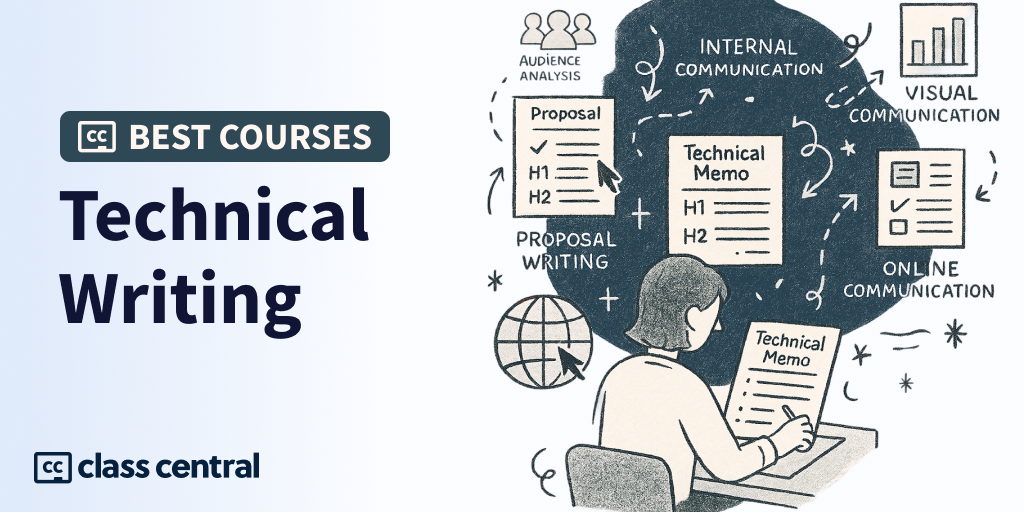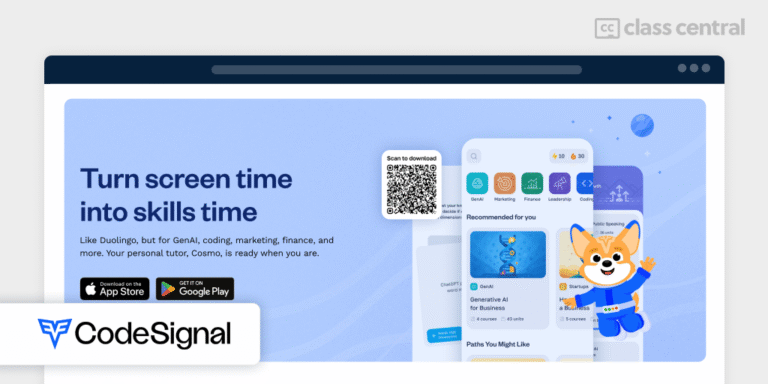

In 1999, NASA’s Mars Climate Orbiter spacecraft reached Mars after months of travel, but instead of entering orbit, it flew too close to the planet and burned up in the atmosphere. Why?
One team used feet and inches in the documents, while another used meters, and $327 million and years of work were lost.
In 2016, another explosion happened — the Samsung Galaxy Note 7, which tended to explode due to the battery overheating. Despite urgent press releases, ads, and emails asking customers to return their devices, it took three months for most buyers to comply because the communication was filled with confusing technical jargon that masked the risks.
Technical writing isn’t just about making things simpler; it’s about building a standardized communication protocol that creates clear, concise, and accurate written materials for everyone.
It might seem easy to learn and master, but it demands an understanding of the audience and user experience, and attention to clarity and detail.
So I’ve curated the best technical writing courses from hundreds of options for aspiring writers and professionals who need to create technical documentation.
Head Directly to:
- Why Learn Technical Writing?
- Why Trust Us and This Guide?
- Best Technical Writing Courses
- Free Learning Resources
Why Learn Technical Writing?
Technical writing goes beyond avoiding confusion; it resolves the communication gap between those who create technology and those who use it.
For instance, a freelance technical writer helped a B2B company build their annual salary report, which got 10,000 downloads! This helped their target audience get insights into the market, and it drove their website visits.
But technical writing is more than reports and manuals. Tech companies need clear API documentation, hospitals need patient guides, and factories rely on safety instructions with no room for confusion.

You might’ve ordered a blood pressure machine and learned how to use it through its manual. Or if you’re a software developer, you might’ve relied on an API guide. Technical writing turns your anxiety and confusion into a clear, actionable state of mind. That isn’t easy.
Let’s look at this Technical Writer job description.

Because it involves such intricate sub-skills, technical documentation is in demand (a freelance whitepaper writer can make anywhere between $2,000 to $10,000 per project!).
While freelancers can take up multiple projects and charge well for them, employees can build leverage and solve problems with technical writing. A simple judgment of adding images to a manual, or clear onboarding guides that reduce training time by weeks, can create a massive difference. Good documentation saves time, prevents mistakes, and improves efficiency.
These courses equip you with the skills a technical writer needs, but before we get to them, let’s understand how I’ve handpicked them.
Why Trust Us and This Guide?
At Class Central, we’re building the “Tripadvisor for online education,” by helping you choose among 250,000 online courses. We’ve helped over 100 million people find their next course. To make the choice quicker, we curate Best Courses Guides that offer you the best free and paid resources to learn a skill.
For this guide, I took courses, watched interviews of technical writers, consulted with various technical writing firms, and studied multiple technical documents. This helped me choose courses that were high in quality and relevance.
When I started as an engineer, I spent months understanding the vocabulary, formatting, and language that go into technical documents. This is a list of courses I wish I had taken to write better technical documentation. There’s something in this list for everyone.
- For Beginners: If you’re new to the technical writing field, start by understanding what it is. The first two courses help you understand technical writing, without overwhelming you. And your transition into it will be smoother with them.
- For New and Aspiring Technical Writers: If you want to become a valued technical writer, you’ll need to master audience needs, subject matter expert interviews, and clear, organized writing skills. The next three courses give you comprehensive knowledge and practical skills to develop your craft and market your writing.
- For Professionals: If you’re an engineer, manager, developer, or in another profession, you might be spending hours writing and building technical content. If you want to feel confident while writing, the last two resources will help you with that.
Best Technical Writing Courses
| Course Highlight | Workload |
| Best for Beginners (Udemy) | ~2-3 hours |
| Best Master Class (Udemy) | ~6 hours |
| Great for Aspiring Technical Writers (Udemy) | ~2 hours |
| Best for New Technical Writers (Udemy) | ~16 hours |
| Career Launcher for Aspiring Technical Writers (Udemy) | ~1.5 hours |
| Best for Documentation Writing (Coursera) | 15 hours |
| Best for Software Documentation Writing (Pluralsight) | ~4 hours |
| Free Resources | Varies |
Best for Beginners (Udemy)
- Level: Beginner
- Rating: 4.5 ★ (2,000+ ratings)
- Duration: 2-3 hours
- Cost: Paid (varies)
- Assignments: No

The first time I had to create product documentation, I felt completely lost. I was confident in my writing, but not in structuring technical information.
If you’re in a similar spot, whether you’re a product manager, engineer, or writer, then this course, by Dr. Katharina Grimm, will reduce that initial anxiety.
It walks you through what technical writing is (and isn’t), and how to plan, draft, and polish professional documentation from scratch.
The modules cover the basics like structuring documents, ensuring quality, editing for clarity, and diving into the planning strategies and metadata, which are often skipped in beginner courses.
Why I Picked This Course:
- This course provides a detailed, structured, and foundational understanding of crafting clear and concise technical documents.
- It gives beginners rules to follow, helping them feel more confident in producing their documentation.
- The instructor’s brief yet informative style was engaging without being overwhelming.
- Learners reported a boost in confidence, noting that the course encouraged them to dive deeper into technical writing.
Cons:
- The course doesn’t go deep into advanced concepts, so it’s better suited for beginners only.
- The course also lacks guided assignments, which can help practice technical writing skills.
Best for:
Engineers, product managers, or writers who have recently started working on documentation and are looking for a simple, quick, and beginner-friendly course.
Best Master Class (Udemy)
- Level: Beginner
- Rating: 4.3★ (2,000+ ratings)
- Duration: 6 hours
- Cost: Paid (varies)
- Assignments: Yes

If you’re just getting started with technical writing and need guidance to draft your first document, check this one out.
This Master Class by Janet Underwood keeps things simple, focused, and practical. It’s designed for beginners who want to test the waters of technical writing without heavy theory or overproduction.
The course walks you through everything from word choice and sentence structure to formatting, document types, and even usability testing (watching real users try a product to find what’s confusing or hard to use).
What stood out is how easy this course is to follow. You won’t be buried in jargon, and the pace is perfect for beginners or career changers on a budget.
Why I Picked This Course:
- What stood out most was the clear and simplified teaching style that welcomes absolute beginners without overwhelming them.
- The instructor explains core writing principles, document formatting, and graphics usage in a practical, approachable way.
- The lessons are short, well-organized, and easy to navigate, making it simple to absorb the material even if you’re learning in short breaks.
- Learners have praised the straightforward structure, real examples, and useful templates. Some have also mentioned how the course has helped them apply skills immediately, without complication.
Cons:
It lacks depth for intermediate or advanced learners, but it’s a solid launchpad for exploring the field.
Best for:
Tech professionals or writers looking to transition into technical writing.
Great for Aspiring Technical Writers (Udemy)
- Level: Beginner
- Rating: 4.5★ (350+ ratings)
- Duration: 2 Hours
- Cost: Paid (varies)
- Assignments: Yes

This course is a great entry point for anyone curious about technical writing. It’s taught by Leigh Hartzman, a content and localization strategist at Google, who has designed the curriculum to teach you to create clear, concise, and customer-centric instructions for a variety of products.
The course is highly practical, walking you through writing common types of instructions, such as FAQs, how-to articles, and troubleshooting.
You’ll get hands-on experience by completing assignments in a fictional scenario, which allows you to apply what you’ve learned to a real-world context. The course also includes valuable lessons on working with product managers and other team members.
Why I Picked This Course:
- It is taught by Leigh Hartzman, who has worked as a content strategist at Google and Waze. So, you’re learning from the master of clarity and precision.
- The course focuses on instructional writing that’s clear, concise, and accessible to diverse audiences.
- Complex concepts are broken into short, focused lessons like writing FAQs, step sequences, and troubleshooters. It makes learning digestible and immediately applicable.
- Each topic is accompanied by fun quizzes and real-world assignments.
- The course consists of real-world scenarios. You play the role of a technical writer in scenarios involving product managers and support teams to craft knowledge base articles and troubleshooting guides.
Cons:
- Some learners felt the material was too basic for technical writers who want to advance in their careers.
- The slide design could be more engaging and sophisticated.
Best for:
Those who want to explore technical writing as a career by creating diverse documents (articles, manuals, instructions).
Best for New Technical Writers (Udemy)
- Level: Intermediate
- Rating: 4.5★ (800+ ratings)
- Duration: 16 hours
- Cost: $15–$20 (not included in Udemy Subscription)
- Assignment: Yes

When I say this course felt like the holy grail of technical writing, I’m not exaggerating. Dr. Ugur Akinci’s Professional Technical Writing is one of the most comprehensive and practice-focused courses.
Despite the higher price point (and it’s not part of Udemy’s subscription plan), this course justifies every cent. It combines professional-level guidance with a hands-on approach: you’ll build a real portfolio project, create your first user guide, and even get feedback from the instructor.
From document structure and clarity to editing and formatting, the course covers it all with downloadable templates and assignments that mimic real-world tasks.
Dr. Akinci is highly responsive, offering guidance that feels more like mentorship than passive instruction. Many learners have used this course to transition into technical writing roles, enhance their professional portfolios, or sharpen workplace communication skills.
Why I Picked This Course:
- I chose this course because it combines a clear, methodical teaching style with decades of real-world experience from a Fortune 100 technical writer.
- His structured lessons cover everything that one needs, from grammar and writing principles to document design and industry tools.
- What stood out to me was the hands-on approach: practical exercises and a final project with personalized feedback
- It can be used by both aspiring technical writers and STEM professionals to learn all about technical writing.
Cons:
The course was last updated in 2019. Some parts might seem outdated, but it teaches core technical writing skills well.
Best for:
Both STEM professionals exploring technical writing and new writers who want strong foundational skills and a portfolio as technical writers.
Career Launcher for Technical Writers (Udemy)
- Level: Beginner
- Rating: 4.5★ (200+ ratings)
- Duration: 1.5 hours
- Cost: Paid
- Assignment: Yes

This course, created by Growth School, is designed for anyone new to technical writing. It’s a beginner-friendly guide that aims to help you master the skills needed to create clear, concise, and impactful technical documents.
The curriculum is practical, covering everything from the fundamental principles of technical writing to the use of various tools and software. It is structured to help you understand how to create a technical document from scratch, how to structure it for maximum efficiency, and how to write in a user-friendly way.
A key focus of this course is not just learning the theory, but also building a professional portfolio, which is essential for landing a job.
Why I Picked This Course:
- It offers comprehensive content for beginners.
- Has a strong emphasis on practical skills and real-world applications.
- It is suitable for a wide range of professionals, including writers, engineers, and project managers.
- The content is designed to help you get a competitive edge in the job market.
Cons:
- The course assignments are marked by users. No evaluation by the instructor.
- The instructor has a heavy accent, but switching on the subtitles helps.
Best for:
New technical writers or career changers who want a structured course with the goal of landing their first technical writing job/gig.
Best for Documentation Writing (Coursera)
- Level: Beginner
- Rating: 4.6 ★ (350+ ratings)
- Duration: ~15 hours
- Cost: Paid (free preview)
- Assignments: Yes

If you’re looking to grasp technical writing concepts quickly but still want a structured approach that takes you through the process, take this course.
It guides you from the history and fundamentals of technical writing to design principles, document types, and ethical practices.
This one can be a go-to for interns, analysts, junior managers, engineers, and IT professionals who are suddenly asked to create documentation and don’t know where to begin.
The modular design means you can start with the basics and build toward advanced skills, such as creating API documentation, ensuring accessibility, and even writing for emerging tech like VR and AR.
Why I Picked This Course:
- It has step-by-step lessons on planning, structuring, and polishing documents.
- It focuses on visual design like typography, layout, and navigation aids.
- The course has ethical considerations, localization strategies, and inclusive communication.
- Student reviews often highlight the clear, easy-to-follow videos, helpful transcripts for clarity, and a steady pace that works well for non-native English speakers.
- While some learners wanted more project-based assignments or deeper dives into specialized topics like SEO and API documentation, most found the course engaging, comprehensive, and confidence-boosting.
Cons:
The audio track is slightly muffled, so switching on the captions would help.
Best for:
Professionals who are asked to write documentation or reports and want a quick introduction to technical writing.
Best for Software Documentation Writing (Pluralsight)
- Level: Beginner
- Rating: 4.5 ★ (300 ratings)
- Duration: ~4 hours
- Cost: Paid (subscription)
- Assignments: No

An efficient developer might not always be an efficient communicator. If you struggle to build documents that your teams can refer to, then this course is for you.
It teaches you to write five kinds of documents: requirements, architecture/design docs, code documentation, test plans, and user manuals.
Even if you’re a new developer, you can take this course because it starts by defining technical writing and then moves on to best practices, design, and more.
Why I Picked This Course:
- It’s a short overview, but it touches every software documentation essential, enough for you to approach technical writing confidently.
- The instructor, Amber Israelsen, is a developer, author, and technical trainer, so she simplifies writing terms and advice.
- It covers grammar, tone, and structure, making it helpful for employees who aren’t fluent in written English.
- The instructor maps out the writing process and includes stories to help students learn better.
Cons:
The course doesn’t offer practical training. It’s more instructional than experiential.
Best for:
New developers, engineers, and project managers who need to create professional software documentation but struggle with clarity, tone, and structure.
P.S. If you’re looking for an advanced API writing course, you can go through Tom Johnson’s free Documenting APIs course (mentioned below).
Free Resources
- Technical Writing Resource (Google) is a free and self-paced technical writing course by Google for engineers, developers, and tech professionals. It covers clarity, structure, and readability with short guides and exercises. It is ideal for improving documentation skills, especially for non-native English speakers.
- Write the Docs stands out as a vibrant, community-driven resource with several collaborative guides, templates, and talks for both new and experienced documentarians. It is great for software developers.
- Alison’s Technical Writing Essentials is great for beginners because it provides a comprehensive, free-to-audit fundamentals course that covers all the basics of technical communication.
- Roadmap.sh/technical-writer offers a visually oriented and structured learning path for those who want to understand how to apply technical writing skills to the rapidly evolving field of AI.
- Henry Harvin’s YouTube Playlist provides a series of free, accessible videos that break down the core concepts of technical writing for beginners.
- Tom Johnson’s ‘Documenting APIs’ Course is a Reddit favorite and the gold standard for learning API documentation. It includes practical exercises and detailed learning on the documentation process.
Now that you’ve explored the best technical writing courses, the next step is to choose the one that aligns with your goals. With these courses, you’ll find the right training in technical communication. You can master the art of clear communication, prevent costly mistakes, and add an invaluable skill to your professional toolkit.
Did this guide help? We’ve got 200+ more for you. Check our Best Courses Guides to find your next course!
The post 7 Best Technical Writing Courses to Master Documentation and Communication appeared first on The Report by Class Central.





![[2025] 470+ Hours of Free LinkedIn Learning Courses with Free Certification](https://365daily.net/wp-content/uploads/2025/08/linked-learning-free-courses-SMpTgc-768x384.png)



